and
CORE 2101 HA and HC Christianity and Culture in Dialogue
Fall 2012
This course meets regularly in Fahy Hall, Rooms 102 and 131
July 20, 2012 version; stay tuned for updates
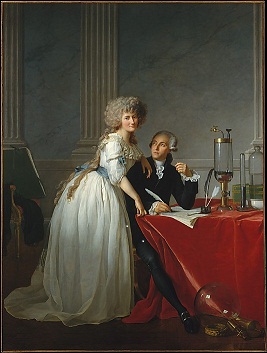
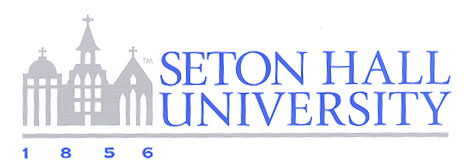
This course takes us from the end of the Middle
Ages to the beginning of the Romantic period. An important aim of the course
will be to try to understand what we mean when we speak of the "modern" world.
What is it that makes our world "modern"? How did it come about? We will trace
the development of the notion of "modernity" as that term is broadly understood:
in historical, social, economic, political, religious, philosophical,
scientific, artistic, musical, and literary terms.
This course is a colloquium, which means
its purpose is to investigate through the discussion of ideas. Your professors
will certainly do their part, but we also expect students to take responsibility
for the course. That means – among other things – being actively engaged in
class discussion. The best way to take this course is to come every day having
done the assignment, with an open mind and lively curiosity, and with a
readiness to engage, discuss, inquire, question, or think aloud.
Like the other Honors Colloquia, this
course is team-taught. Your instructors are Dr. Robert Waters, Dr. Dermot Quinn
and Fr. John Ranieri. Please don’t hesitate to contact us in person, by phone,
or by email if there is something you would like to discuss.
CORE 2101- Christianity and Culture in
Dialogue. The readings for the first section of this course (1 Corinthians and
Plato) will have been covered in the first Honors Colloquium, while readings
from section 5 (The Communist Manifesto and Gaudium et Spes) will be dealt with
in the fourth Colloquium. In this colloquium we will be reading texts from the
2nd (Aquinas), 3rd (Galileo), and 4th (Descartes and Montaigne) sections of the
core course.
Please note that we will NOT be using the
CORE blackboard site or its materials in this course. All materials will be on
the HONS 2003 site.
Contact Information for Dr. Quinn:
Office: Fahy 337 Office hours:
Tel. (973)275-2774 Email: Quinnder@shu.edu
Contact Information for Fr. Ranieri:
Office: Fahy 313 Office hours: Tuesday and
Thursday – after class until noon; Thursday from 2:30-3:00. Also by appointment.
Tel. (973)275-5184 Email: Ranierjo@shu.edu
Contact Information for Dr. Waters:
Office: Office hours:
Tel. Email: Robert.Waters@shu.edu
Required Texts:
· The Jesuit Relations, ed. Allan Greer
(Bedford)
· Introduction to Contemporary
Civilization in the West (Columbia UP) You should already have this from the
Medieval/Renaissance colloquium.
· The Communist Manifesto and Other
Revolutionary Writings (Dover)
· Descartes, Discourse on Method and
Meditations on First Philosophy (Hackett Publishing)
· Lessing, Nathan the Wise (Bedford)
· Elder and Paul, The Miniature Guide to
Critical Thinking (The Foundation for Critical Thinking) This text will be given
to you – no need to buy it.
Some readings will be posted in Course Documents on our blackboard site. Others will be found through External Links on our blackboard site. These materials are not lengthy and should be downloaded and brought to class. Other materials will be copied for you and provided ahead of time in class. Some materials will be assigned as we go. You are responsible for keeping track of all changes, including additions, announced in class, by email, and so on.
Course Objectives and Requirements:
On completion of these courses, you will
be able to:
1. discuss the principle ideas embodied in
the texts we have studied;
2. relate these ideas to their historical
contexts, and compare them with each other;
3. develop and argue a thesis about the
meaning of a text;
4. be able to follow and explain an
author's argument or point of view
5. compare texts and draw conclusions on
the basis of close reading and critical analysis.
Proficiencies
This course satisfies the requirements for
both the Critical Thinking and the Reading/Writing proficiencies, which are
required as part of the University Core Curriculum. In addition to the content,
subject matter, and themes of the course, it is also crucial to develop those
skills and practices that help us to develop our abilities to read carefully,
understand precisely, and articulate our insights clearly. Not only are these
skills cross-disciplinary; they are an essential component in our development as
intelligent persons.
To satisfy the requirements for the
Reading/Writing proficiency a course must include a significant amount of
writing (both formal and informal) along with an expectation that there will be
several hours of academic reading per week. Approximately 80% of the course
grade will be based upon writing, whether in the form of papers, short
assignments, quizzes, or exams. The requirements for this Colloquium have been
designed with this goal in mind. Readings for the course are taken almost
entirely from primary sources. This is based on the conviction that it is good
to read and analyze the authors' own words, rather than beginning with what
others have written about them. A goal of the course is to increase your ability
and confidence in being able to read and analyze primary texts.
It is one thing to run your eyes over the
words on a page; it is quite another to read attentively and critically. The
Critical Thinking proficiency is geared toward developing your abilities to
understand and think through the course readings. This means, among other
things, learning to read texts carefully, being able to follow the author's
train of thought, becoming attentive to nuance within a text, and being able to
articulate your insights clearly and precisely, both in your writing and in
class discussion. Critical thinking also means raising questions about what an
author has to say. Is the author's point convincing? Why or why not? How does a
particular author's point of view compare with that of another author dealing
with the same issue? Who do you think is right? Not only is critical thinking an
essential component in reading texts; it is also necessary to apply to your own
writing, so that what you write comes across as clear, well-organized, and
coherent. A number of course assignments are aimed at helping you develop the
practice of critical thinking. As a help to improve your ability to think
critically, you will receive a copy of The Miniature Guide to Critical Thinking.
It is a very handy summary of the criteria for critical thinking. We will be
making use of these critieria in evaluating course work.
Attendance and Participation
Class participation is important in this
type of class, and each person’s input is valuable. Come to class prepared to
discuss the readings, even if that means just asking relevant questions about
material you did not understand. Come to class prepared to be active and
engaged. The participation grade depends on both the quality and the quantity of
your participation. Obviously the most basic form of class participation is
regular attendance. More than 3 unexcused absences will result in a failing
grade for class participation; more than 6 unexcused absences will result in a
failing grade for the course. For an absence to be considered excused you must
have documentation from a medical professional or the Office of Student Affairs
(or Athletic Dept. in the case of athletes) indicating that you were unable to
attend the particular class from which you wish to be excused. In cases of an
extended absence (due to serious illness or emergency) you must obtain
documentation from the Office of Student Affairs indicating the reason for the
absence. If you stop attending class it does not mean you have withdrawn from
the course. In order to withdraw you have to fill out a withdrawal form
(obtainable from the dean’s office or the Honors office). Non-attendance is not
withdrawal. Being late 3 times is the equivalent of one absence. This includes
returning to class late after the break. Although you are registered for two
distinct courses (CORE and HONS), for pedagogical purposes we will be treating
the period from 8:30-11:15 as one class. This means that breaks in class are
given at the discretion of the instructors (including the length and time of the
break). Normally a break is given around 9:45 or so. Chronic lateness is
disrespectful and disruptive. Please take care of personal matters before class
(e.g., bathroom, meals, etc.); apart from an emergency there is no good reason
to get up and leave the classroom while class is going on. No eating in class.
Be sure to bring the necessary texts/handouts with you to class. Doing work for
other classes during this class is unacceptable. Private conversations,
whispered commentary on what others say during class, and/or passing notes are
inconsiderate to others and destructive of the learning process. Cell phones and
any other electronic devices should be turned off and stored away during class.
Please wait until after class to answer calls. When sending an e-mail, be sure
to use proper forms of address, e.g., Prof., Dr., Fr., etc. and identify
yourself.
While you are certainly encouraged to make
use of academic technology to help you in your work, laptops, tablets, etc. are
not to be used in class. You will need hard copies of the assigned readings with
you in class.
The following table spells out the
criteria for class participation and the corresponding grade level:
| Criteria | Grade range |
| - participates actively
and voluntarily every class by contributing to classroom discussion - demonstrates familiarity with readings - insightful - answers questions knowledgably - asks questions relevant to readings and displaying intellectual curiosity - always brings relevant texts to class - responds to others’ comments with respect and interest - takes responsibility for the success of the class on a daily basis |
A (if all of these criteria are met most of the time) |
| - participates
voluntarily and actively most days and at least every week - shows some familiarity with readings - always brings relevant texts to class |
B (if all these criteria are met most of the time) |
| - participates
occasionally and/or usually only when called upon - shows some familiarity with readings, but little specific knowledge - does not always have relevant texts in class |
C (if one or more of these criteria are present) |
| - in general, responds
only when called upon - does not ask or answer questions - does not always seem prepared - does not always have relevant texts in class - takes no discernible active role in class - comes late to class - brings food to class, checks cell phone, does work for other classes -shows lack of respect to classmates or teacher |
D – F (if one or more of these criteria are present) |
| - has more than the
equivalent of 3 absences |
F |
Volunteering to read in class is helpful
and welcome, but it is no substitute for active class participation. It is not a
factor in determining the participation grade.
Violations of Academic Integrity
CHEATING means the giving, receiving,
taking, or purchasing of any information or written work not your own during
exams or on any written assignments.
PLAGIARISM means copying the ideas and/or
language of any source without acknowledging that source, without proper
quotation of any language (even single words or short phrases) taken directly
from that source, and without citation of all paraphrased as well as quoted
ideas from that source. Plagiarism occurs when anyone attempts to present the
published or unpublished work (ideas and/or language) of any person as his or
her own.
PENALTIES: To be determined at the
discretion of your instructors. Among the possibilities would be that those
found to be guilty of cheating or plagiarism the first time would receive a 0
(zero) for the assignment; the second time, automatic failure for the course;
the third time, recommendation to the dean for expulsion.
Disability Services Statement:
Students at Seton Hall University who have a physical, medical, learning or
psychiatric disability, either temporary or permanent, may be eligible for
reasonable accommodations at the University as per the Americans with
Disabilities Act (ADA) and/or Section 504 of the Rehabilitation Act. In order to
receive such accommodations, students must identify themselves at the Office of
Disability Support Services (DSS), provide appropriate documentation and
collaborate with the development of an accommodation plan. The DSS phone number
is 973-313-6003. For further information, please go to
http://studentaffairs.shu.edu/health/DisabilitySupportServices.html.
Course requirements
Class participation—20% See table above
for criteria.
Quizzes and/or writing assignments—20%
There will be regular quizzes and writing assignments (usually at least one per
week). All quizzes and most writing assignments will be done in class -
occasionally you will be assigned a writing topic and asked to write a 2-3 page
paper to be submitted in class on the day the topic will be discussed. All
assignments will be geared to the readings assigned for that day. No make-ups on
quizzes or writing assignments without documentation from a medical professional
stating that you were advised not to attend class on the day the quiz took place
or the assignment was due.
Papers—20% A paper (8-10 pages) will be
assigned, requiring you to analyze one or more of the primary sources we will be
reading for class. You will be given a list of topics from which to choose. It
is not a research paper; the goal is to be able to understand the author(s)
accurately and to write about the question clearly and with nuance, while being
able to substantiate your interpretation by careful and thorough use of textual
citations. You are required to submit an outline of your paper prior to handing
in the finished text. The paper must be submitted by the end of class on the
date is due. Papers submitted after class will be considered late. Do not place
papers in your professors' mailboxes or under their office doors. Upon receiving
your paper back from your teachers with their corrections and suggestions, you
may resubmit it after incorporating the relevant changes.
Midterm Exam—20% At least half of the exam
will consist of an essay that will involve being able to make connections among
the various texts and authors we have studied. The exam will also require you to
identify a number of passages taken from the primary texts we have read, and to
name the author, the work from which it is taken, and to explain what it means
in its context.
Final Exam—20% Similar in format to the
midterm. Do not make end of semester travel plans without first ascertaining the
date and time of the final exam.
Course Schedule
Please note that assignments may change,
so watch the Announcements section of our blackboard site and your email, and
listen and make note of any changes as they are announced in class.
8/28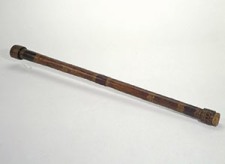 |
Introduction: What’s
modern about the modern world? What is involved in reading and thinking critically? Image: Galileo's telescope. Museo Galileo, Florence |
8/30 |
The world of the
Reformation Readings for class: · Aquinas (ICCW 215-17, 220-23) · Aquinas on nature and grace (handout) · Luther (ICCW 717-730) Image: Martin Luther, by Lucas Cranach the Elder, 1529. Uffizi, Florence |
9/4 |
The Reformation of the
world Readings for class: · Aquinas (ICCW 241-47, 250-53) · Calvin (ICCW 731-751) · Luther “On Governmental Authority” (handout) · Winthrop, “A Model of Christian Charity” (handout) Image: John Calvin |
9/6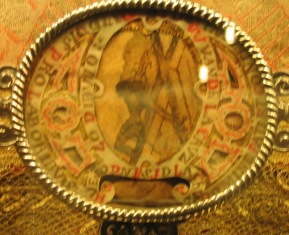 |
Spain in the Age of
Exploration/New Spain Readings for class: · Columbus (ICCW 515-20) · Sepulveda and Las Casas (ICCW 521-43) · Sor Juana de la Cruz (handout) · Selections from Spanish mystics (handout) Image: Crucifixion, drawn by John of the Cross for Teresa of Avila. Convent of the Incarnation, Avila |
9/11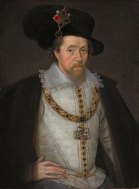 |
England: rights,
power, and property Readings for class: · James I (ICCW 923-39) · “An Agreement of the People” (ICCW 940-60) Image: James VI and I |
9/13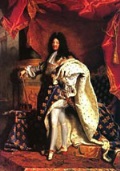 |
France: “I am the
State” Readings for class: · The Elaboration of the Sovereign State in France (ICCW 867-94) Image: Louis XIV by Hyacinthe Rigaud. Paris: Louvre |
9/18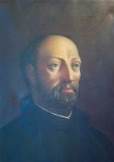 |
An encounter of
cultures in New France Readings for class: · Council of Trent (ICCW 770-773) · The Jesuit Relations (The Jesuit Relations, 20-38, 41-48, 51-58, 61-69, 90-91, 112-18, 146-71) Image: St. Jean de Brébeuf, S.J. |
9/20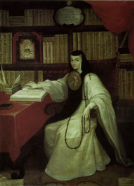 |
Colonization and
Culture TBD Image: Sor Juana de la Cruz, by Miguel Cabrera, 1750 |
9/25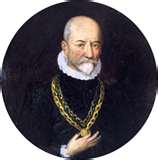 |
Humanism
Readings for class: · Montaigne, Essays (handout) Image: Michel de Montaigne, anonymous portrait, c. 1590 |
9/27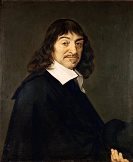 |
Rationalism and method Readings for class: · Bacon (ICCW 779-85) · Descartes, Discourse on Method (Parts 1-4, 6); Meditations on First Philosophy (Letter of Dedication, Preface to reader, Meditation 1, 2, 6) Image: René Descartes, by Frans Hals. Paris: Louvre |
10/2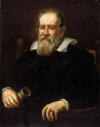 |
A revolution in
science Readings for class: · Galileo (ICCW 786-804) Image: Galileo Galilei, portrait by Justus Sustermans, 1636 |
10/4 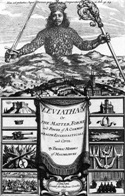 |
A new science of
politics Readings for class: · Hobbes (ICCW 961-93) Image: Frontispiece of Leviathan Paper outline due! |
| 10/9 | Fall Break: No class |
10/11 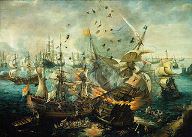 |
Midterm Exam Image: The Battle of Gibraltar, 1607, by Hendrick Cornelis Vroom. Amsterdam: Rijksmuseum |
10/16 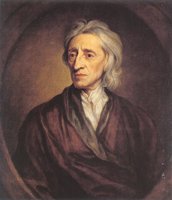 |
Politics and property Readings for class: · Locke (ICCW 1010-34, 1044-53) Image: John Locke, by Sir Godfrey Kneller. St. Petersburg: State Hermitage Museum |
10/18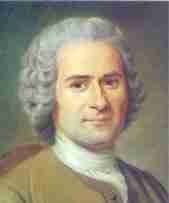 |
Has modern society
made us better? Readings for class: · Rousseau, (CMORW 1-20, ICCW 1269-1306) Image: Jean-Jacques Rousseau, by Maurice Quentin de la Tour, 1753. San Quentin: Musée Antoine Lécuyer |
10/23 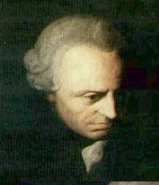 |
Reason and its limits Readings for class: · Hume, An Enquiry Concerning Human Understanding (handout) · Kant, Preface to The Critique of Pure Reason (handout) Image: Immanuel Kant |
10/25 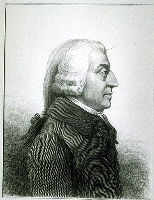 |
Money and morals Readings for class: · Smith (ICCW, 1314-33) · Hume (ICCW 1149-51, 1158-64) Image: Adam Smith |
10/30 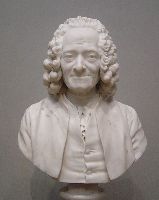 |
Religion in the
Enlightenment Readings for class: · Lessing, Nathan the Wise · Voltaire (ICCW 1189-96) Image: Voltaire, by Jean-Antoine Houdon, 1778. Washington: National Gallery of Art |
11/1 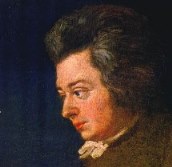 |
Music and society:
Mozart and the opera Readings for class: · TBD Papers due! Image: Mozart , by Josef Lange, 1783 |
11/6 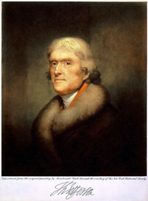 |
Revolution: those
unruly colonies Readings for class: · Paine (CMORW 56-62) · Jefferson (CMORW 41-55) · Trenchard and Gordon, Cato’s Letters (handout) Image:Thomas Jefferson, by Rembrandt Peale, 1805. New York Historical Society |
11/8 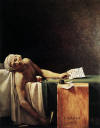 |
Revolution: Liberté,
egalité, fraternité! Readings for class: · Desmoulin (CMORW 67-69) · Sieyes (CMORW 70-74) · The National Assembly (CMORW 75-78) · Marat (CMORW 82-84) · Paine (CMORW 85-89) · Danton (CMORW 90-91) Image: The Death of Marat, by Jacques-Louis David, 1793. Royal Museums of Fine Arts, Brussels |
11/13 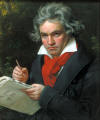 |
Beethoven and the
symphony Readings for class: · TBD Image: Ludwig van Beethoven, by Josef Karl Stieler, 1820. Bonn: Beethoven-Haus |
11/15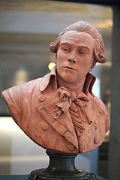 |
Revolution: Virtue and terror Readings for class: · Robespierre, On the Principles of Political Morality · Robespierre, On the Death Penalty · Robespierre, On Subsistence Goods · Robespierre, Speech on the Festival of the Supreme Being · Burke, “Letter to a Member of the National Assembly” (handout) Papers returned. Image: Maximilien Robespierre. Terracotta bust by Claude-André Deseine, 1792. Château de Vizille |
11/20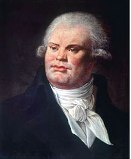 |
Who owns the Revolution? Film: "Danton" Image: Georges Danton by Constance-Marie Charpentier, 1793. Musée Carnavalet, Paris |
| 11/22 | Thanksgiving - University Closed |
11/27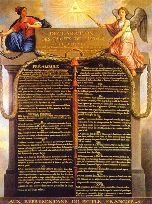 |
Rights talk Readings for class: · The Declaration of Independence (CMORW 63-66) · The Bill of Rights · Madison (ICCW 1307-13) · The Declaration of the Rights of Man and of the Citizen (CMORW 79-81) Revised course papers due. Image: The Declaration of the Rights of Man and of the Citizen |
11/29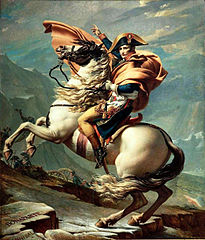 |
Romanticism and the Napoleonic Age Readings for class: Wordsworth (readings tbd) Napoleon (readings tbd) Image: Jacques-Louis David, Napoleon Crossing the Alps, 1801. Paris: Musée National du Château de Malmaison |
12/4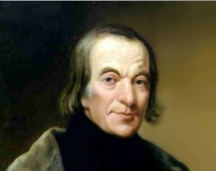 |
Origins of socialism and anarchism Readings for class: · Marechal (CMORW 92-95)) · Babeuf (CMORW 96-97) · R. Owen (CMORW 98-101) · Considerant, Principles of Socialism (handout) · Proudhon (handout) Image: Robert Owen, by John Cranch, 1845. Indiana Historical Society |
12/6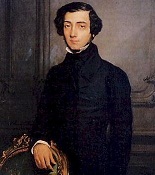 |
The ambivalence of modern democracy Readings for class: · Tocqueville, Democracy in America (handout) Image: Alexis de Tocqueville, by Theodore de Chasseriau, 1850 |
12/ |
Final Examination Image: The Battle of Waterloo |
Image at top of page:
Jacques-Louis David, Antoine-Laurent Lavoisier and His Wife
Marie-Anne-Pierrette, 1788 New York: Metropolitan Museum of Art
![]()
| HONS 1001 | Curriculum | Honors Faculty |
| HONS 1102 | Honors Seminars | Honors Students |
| HONS 2003 | Honors Advising | Application and Admission |
| HONS 2105 | Honors Enrichment | Honors Program Page |